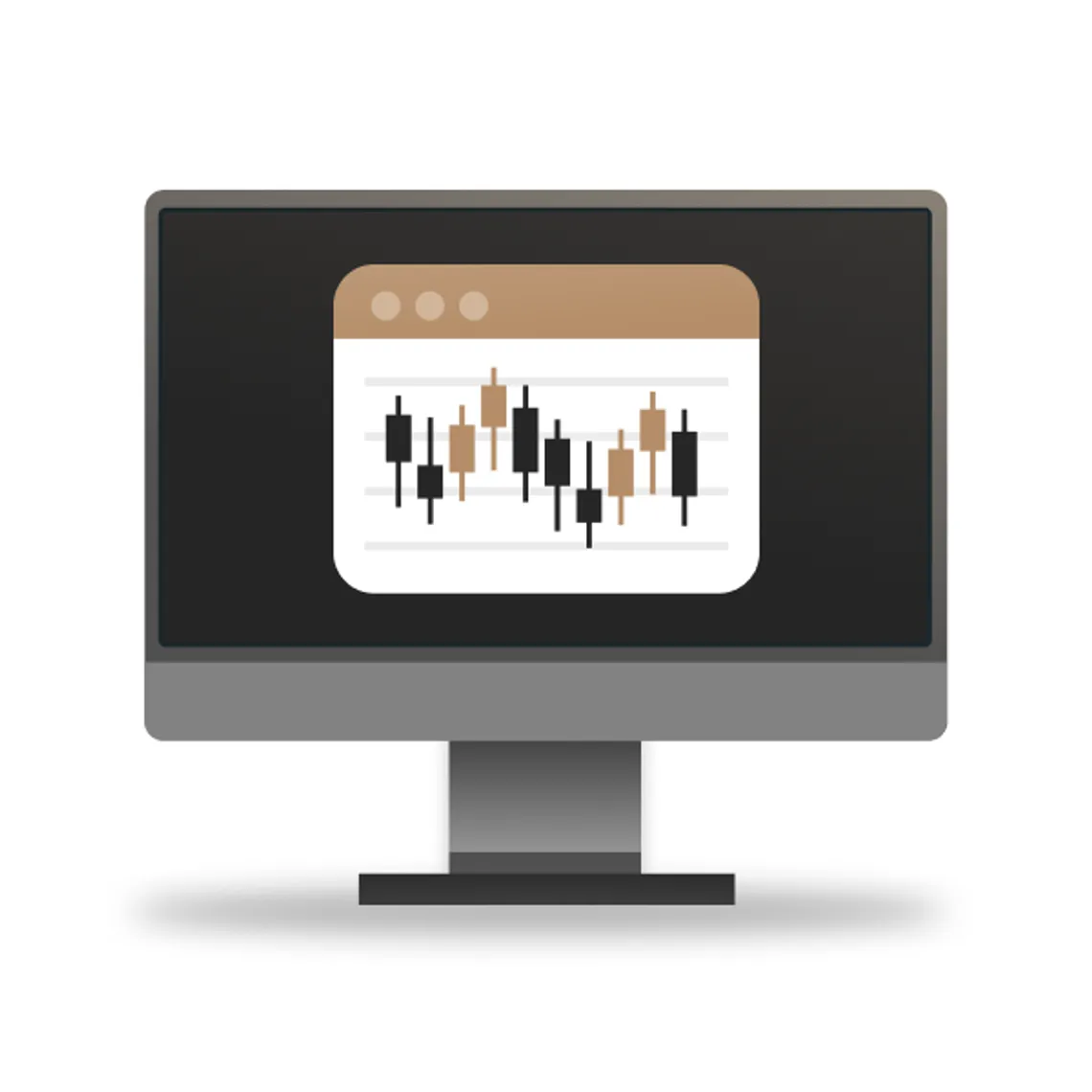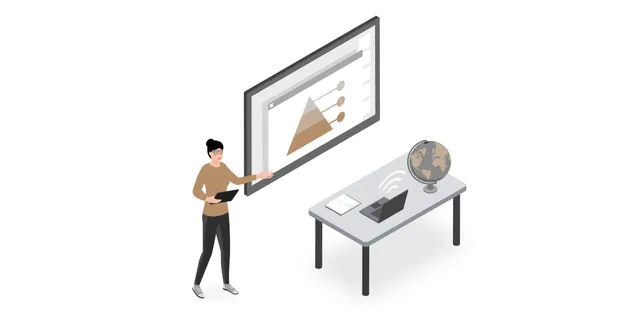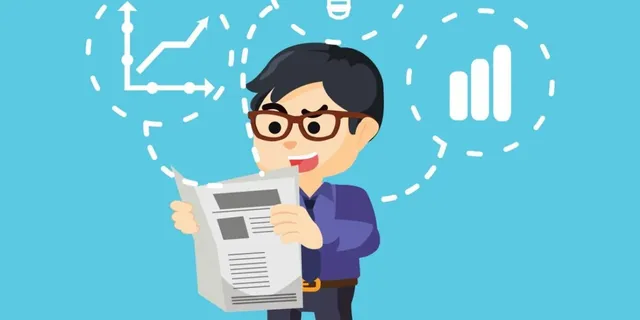What is automated trading?

Automated trading is the trading of assets using programmable instructions.
Key takeaways
-
Automated trading uses programmed instructions to trade securities automatically and now accounts for 60-73% of all US equity trades.
-
Key advantages include removing human emotions from trading, executing trades at ultra-high speeds, backtesting strategies, and reducing transaction costs.
-
Major disadvantages include vulnerability to mechanical failures, potential for over-optimization, and studies showing it can exacerbate market volatility.
-
Retail traders now have access to algorithmic trading systems that previously were exclusive to institutional investors and require no coding knowledge.
-
Despite technological advantages, automated systems are not foolproof and traders must still conduct proper due diligence and fundamental/technical analysis.
Over the last decade, automated trading has grown on the back of its adoption by institutional investors and retail traders.
According to the US Securities and Exchange Commission (SEC), automated trading systems are an “integral and permanent part of our modern capital markets". Studies show that over 60% of equity trades in the US are conducted via automated trading systems.
What is auto trading? Read on to learn the meaning of automated trading and its pros and cons.
Key points
-
Automated trading is trading securities using programmed trading instructions that can be executed automatically.
-
The use of automated trading has grown to account for over 60% of overall equity trades in the US.
-
Automated trading takes away the human emotion aspect from trading.
-
Advantages of automated trading include high speed, backtesting and reduced transaction costs.
-
Disadvantages of automated trading include risk of mechanical failures and over-optimisation.
-
Several brokerage firms offer automated trading solutions to retail traders.
What is automated trading?
The definition of automated trading systems refers to trading of securities such as stocks, foreign exchange (FX), commodities, index funds and financial derivatives using programmed trading instructions that can be executed automatically. It is also referred to as algorithmic trading systems or alternative trading systems.
Automated trading systems are set up by establishing trading rules based on specific entry and exit points and other variables including time and volume.
This type of modern trading strategy is widely used by financial firms across the world. According to market research firm Mordor Intelligence, about 60% to 73% of all overall equity trading in the US is conducted by algorithmic trading accounts.
How does automated trading work?
In an automated stock trading system, stock pickers input specific entry price points, exit price points and other rules into programmed trading systems.
The entry and exit points of a trade are calculated through analysis of price history, technical indicators and the preferred trading strategy.
Highly modernised automated trading systems leverage artificial intelligence and machine learning technologies in order to make trading more efficient and accurate. As pointed out by the US SEC:
According to JP Morgan, its algorithmic trading systems target metrics include volume-weighted average price, time-weighted average price, strike price of options and closing price of the security. Automated traders can also target market behaviour using these trading systems.
Automated systems for retail traders
While algorithmic trading systems are mainly used by institutional investors, hedge funds and investment banks, they are also available to retail traders today.
For example, a retail trader can set a rule to enter a long position in a stock if its 50-day moving average (MA) crosses above its 200-day MA. Furthermore, traders can set up an exit price based on their price target through take-profit orders. The stock will be sold automatically once its price crosses the pre-defined exit price.
Retail brokerages offer algorithmic trading solutions that do not require its user to have coding knowledge. Traders can copy trading strategy templates, backtest copy trades and deploy these auto trades within seconds.
Pros of using automated trading systems
Human emotions are said to be one of the biggest risks when investing or trading in financial markets.
The use of automatic mechanisms is likely to benefit traders by setting systematic, rule-based trading process. As Mordor Intelligence pointed out:
For institutional investors who execute high-frequency trades, algorithmic trading allows them to break these trades into small parts which are executed in specific time intervals according to a pre-defined trading strategy. Mordor Intelligence added:
Institutional investors also use algorithmic trading systems to profit from small price movements which requires execution of trades at high speed.
According to investment solutions company Shift Markets, advantages of automated trading are as follows:
-
Trades are executed in a fraction of second at a pace “faster than humans can perceive”.
-
Algorithm trading systems can scan and execute on multiple indicators at a time.
-
Trades are scanned faster using algorithm trading systems.
-
Trades executed on algorithm trading systems are highly accurate.
-
Algorithm trading systems give traders the opportunity to backtest their trading strategies before deployment in real-time.
-
Algorithm trading systems can reduce transaction costs by removing the need to constantly monitor the market.
Cons of using automated trading systems
While automated trading systems have several advantages that have helped its popularity soared in the last few decades, it comes with its disadvantages that investors need to be aware of.
-
Automated trading systems are vulnerable to mechanical failures such as power cuts or loss of internet connection. Trade orders may fail to execute if orders are not sent to the market. However, traders can safeguard from such issues with advance preparations.
-
Automated trading systems are not foolproof. Traders might see losses even after implementing complex trading strategies and conducting backtests before market deployment. Traders must not be over-dependent on automated trading solutions and need to be prepared for the unpredictability of financial markets.
-
Automated trading systems may also lead to over-optimisation of trading strategies.
-
According to the US SEC, studies have shown algorithmic trading to exacerbate periods of unusual market stress or volatility.
The bottom line
Automated trading systems have been in existence for over 50 years. The past two decades have seen a massive growth in its adoption due to technological enhancements. Automated trading systems now offer high-speed trading and efficient use of market data to its return-seeking users.
Today automating trading is also available to retail investors who can make use of this technology that was exclusive to institutional investors years ago.
However, retail traders must bear in mind that automated trading systems are not the end-solution to their goals. Market risk is not reduced with the use of these advanced mechanisms.
Traders must take time to study the asset they wish to trade, looking at fundamental and technical analysis, and acknowledge the unpredictability of financial markets.
Remember that your decision to trade should depend on your risk tolerance, expertise in the market, portfolio size and goals. Never trade money that you cannot afford to lose. And always conduct your own due diligence.
FAQs
What is the difference between algorithmic trading and automated trading?
Automated trading refers to trading of securities such as stocks, foreign exchange (FX), commodities, index funds and financial derivatives using programmed trading instructions that can be executed automatically. It is also referred to as algorithmic trading.
Is automated trading profitable?
Automated trading systems can be profitable if used efficiently. However, traders must bear in mind that automated trading systems are not the end-solution to their goals. Market risk is not reduced with the use of these advanced solutions and all trading may result in loss of money.
Is automated trading legal?
Automated trading is legal and is subject to SEC and FINRA rules in the US.
Visit related finance terms

What is take-profit order

What is hedge fund
